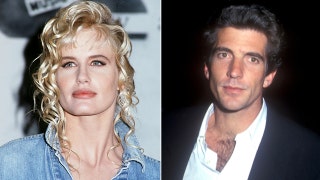New York – Unlike most of America’s founding fathers on U.S. bills, Alexander Hamilton never became president, and if people actually knew something about him, it was the fact that he died fighting a duel with Vice President Aaron Burr.
Of the small club of men whose likeness currently appears on U.S. currency, he was the most obscure. So much so, in fact, that the Treasury Department is planning to replace him on the $10 bill with a woman. And not just a woman: Any woman.
The other paper money man who never became president, Benjamin Franklin, has traditionally had much more street cred than Hamilton.
But these days, millennials are making themselves seem cooler by rapping about the former Treasury Secretary, thanks to the smash Broadway show, “Hamilton.”
Lin-Manuel Miranda’s hip-hop musical has changed the way Americans think about history, musicals, education and the idea that the founding fathers are — as Miranda put it —“old, dead white men” they cannot relate to.
Starring a cast full of people of color, “Hamilton” has attracted the attention of celebrities and political figures and grosses an average of $1.7 million a week in ticket sales. It is sold out until September 2016 at the earliest.
Miranda, who also stars in the show, said “Hamilton” appeals to younger people for two main reasons: the music and the character of Hamilton himself.
“One, I think the music just speaks their language in a way that doesn’t feel like a leap,” Miranda told Fox News Latino. “Two, I think Hamilton is kind of a bad-ass. He did a lot while he was alive, he died young, and I think that kids are more aware of that than we think.”
On any given show day, a line of young fans will be lined up outside the Richard Rodgers Theatre from dawn to show time, hoping to be lucky enough to get a ticket from cancellations—if there are any.
Austin Rhyne, a student at the University of Alabama, purchased a plane ticket to New York City — and even missed some mid-terms — to wait in the cancellation line in the hopes of seeing “Hamilton.”
He had refused to listen to the soundtrack, intending to see the show live with no pre-conceived ideas about the story, characters or music. He said that even though he has not yet listened to the music from the show, the originality of “Hamilton” was what drew him to New York.
“It’s history, but told in a cool way,” Rhyne said. “The biggest appeal to me is that it’s something that so many people see as this bland, boring topic, but it’s revitalized and done in a very interesting way.”
Alex Welch, a student at New York University, has entered Hamilton’s live ticket lottery 10 times and has entered the digital lottery every day since it opened – to no avail. So she decided to give the cancellation line a try.
“It takes these people that we read about in history books and see in old portraits—that’s something that in the year 2016 can be hard for people to connect to,” the 19-year-old said.
“The show does a really good job humanizing the people of history, showing that they were real people, showing the drama and complexity of their lives,” she said. “Also, the matter of having a cast made up of people of color makes this very white, male part of history relevant and accessible to people who were never allowed to be a part of that narrative before.”
Kate Fueyo, another 19-year-old student at NYU, said that “Hamilton” awakened a sense of patriotism within her that was not as present before.
“It makes [American history] come to life, and it really made me appreciate the people in our past and everything that they went through,” she told Fox News.
The Broadway hit has also inspired educators across the country to start integrating the historically-accurate musical into their curriculum.
In October of last year, the Rockefeller Foundation partnered with the producers of “Hamilton” to put $1.5 million toward subsidizing show tickets for 20,000 New York City public school students. The first student-only matinee will be held on April 13, 2016.
Patrick Sprinkle, who teaches Advanced Placement American history and public policy at the NYC Lab School for Collaborative Studies, said the story of Hamilton gets his students — some of whom now have the “Hamilton” soundtrack downloaded onto their phones —excited about history and motivates them to learn more.
“Americans have a deep passion and interest in their own history,” Sprinkle said. “There’s always that fire to learn about history, but only at the point where it comes alive, and Hamilton’s story is still relatable. It’s a story about struggle and that speaks to people.”
Miranda believes the appeal for young people has to do with optimism.
“Us old folks, we’ve been through it a bit,” Miranda told FNL. “We’ve been beat up by life a bit. But young folks, it’s all still possible, and so the notion of a story about someone who got so much done and helped found a country, but also had all these demons and had all of these conflicts – I think it’s incredibly relatable.”














































